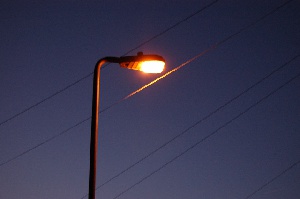The Electricity Company of Ghana (ECG) says the country’s manufacturing industries opted to undergo an intense power rationing cycle that will see them have blackouts for 48 hours before enjoying six consecutive days of uninterrupted power.
According to the country’s power distributor, the new scheme will apply to companies operating within the various industrial enclaves within its operational areas, and will not affect those that find themselves in residential areas.
The Association of Ghana Industries maintains that with close to 80 percent of industries operating outside the industrial enclaves, the effect of the new schedule will be minimal and rather accrue to the benefit of industries as a whole.
Also, the agreement with the Association of Ghana Industries (AGI), ECG said, was done with the assumption that industries will not be operating on Sundays.
“What we all agreed on is if you don’t work on Sundays don’t say because of load-shedding you are going to work. Looking at the records on Sundays, generally the load is low; but we have all agreed that we should be disciplined and stick to the agreement,” he pleaded.
Addressing a media briefing in Accra, Tetteh Okyne, Director of Operations, said the austere measure will see ECG recover about 25 percent of power from industry.
“What we are doing now is trying to get back to a level where everybody can predict what’s available and we can all plan along what’s there. What was happening previously was not sustainable…for instance we have industries in the Spintex Road area going off virtually every day. This move will bring some stability and allow them to plan,” he said.
Mr. Tetteh said the decision by the industries to cut power should see a stability of power enjoyed by consumers in residential areas after the ECG Director of Operations admitted that the power company has not been able to stick to initial load rationing schedules.
Ghana’s current power generation is severely challenged following inadequate gas supply from Nigeria. The situation has not only led to a power crisis but eroded whatever reserve margin the country could fall on in terms of emergency cover.
Demand for electricity in Ghana increased by an all-time high of 12.38 percent in 2013, growing from the 2012 peak of 1,728.9Megawatts (MW) to 1,942.9MW at the close of last year.
Over the last four years, however, the average year-to-year growth in demand for electricity has been about 10 percent. The estimated demand is growing and current projections indicate that the country’s requirements for electricity will hit 2,764.2MW in 2015.
The industrial load-shedding that will last till December 31, according to the ECG, should create a makeshift reserve margin that can be fallen on when there’s an emergency situation.
Mr. Tetteh however could not tell exactly how much load the power company is currently shedding or is expected to realise from the industrial programme, saying he didn’t want to go “into specifics because of the erratic nature of power generation now”.
But the President of the Ghana Chamber of Commerce and Industries (GCCI), Dr. Seth Adjei Baah wants ECG to rather cut off supplies to domestic consumers in favour of industries.
“I believe that instead of cutting industries, we should cut local domestic consumption. If I’m not having light for two days and industry is working, it is better for me because industry still keeps the people employed. If you cut it and they lay people off, it’s going to be a problem on our hands,” he said.
This year industry is estimated to grow at 4.6 percent in 2014, down from 7.3 percent in 2013 on account of weak performances by the mining and quarrying, electricity and manufacturing sub-sectors.
Business News of Thursday, 4 December 2014
Source: B&FT
Industries make power sacrifice
Entertainment












